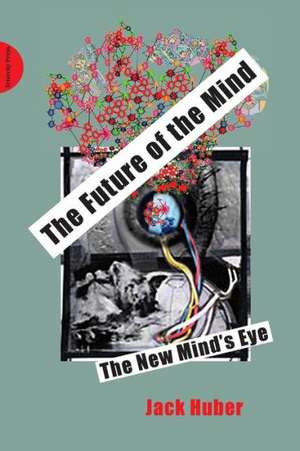The Future of the Mind
Autor Jack Huberen Limba Engleză Paperback – sep 2013
Preț: 209.24 lei
Nou
Puncte Express: 314
Preț estimativ în valută:
40.04€ • 41.72$ • 33.29£
40.04€ • 41.72$ • 33.29£
Carte tipărită la comandă
Livrare economică 10-24 februarie 25
Preluare comenzi: 021 569.72.76
Specificații
ISBN-13: 9781909470071
ISBN-10: 1909470074
Pagini: 216
Ilustrații: black & white illustrations
Dimensiuni: 152 x 229 x 12 mm
Greutate: 0.32 kg
Ediția:New.
Editura: Triarchy Press Ltd
ISBN-10: 1909470074
Pagini: 216
Ilustrații: black & white illustrations
Dimensiuni: 152 x 229 x 12 mm
Greutate: 0.32 kg
Ediția:New.
Editura: Triarchy Press Ltd
Notă biografică
Jack Huber has an extensive background in anticipating and planning for future technological developments, their implications, and the introduction of unique interfaces for our collaboration with information systems. He has applied scenario planning techniques for businesses, governments, and NGOs throughout the world improving their understanding of future opportunities and limitations, strategies, and long range planning. His work in man/machine interfaces spans the deployment of: the TouchTone telephone * and # keys - a seminal information system interface still widely used the first generally available remote access system comprised entirely of fiber optics remotely interfacing end-users and multiple computers Geographic Information Systems (GIS) dynamically locating consumers and businesses for market-demand/supply applications - the forerunner of GPS applications. In all of these, his understanding of the limits and opportunities of human/information system collaboration was essential. Mr. Huber remains an avid futurist.
